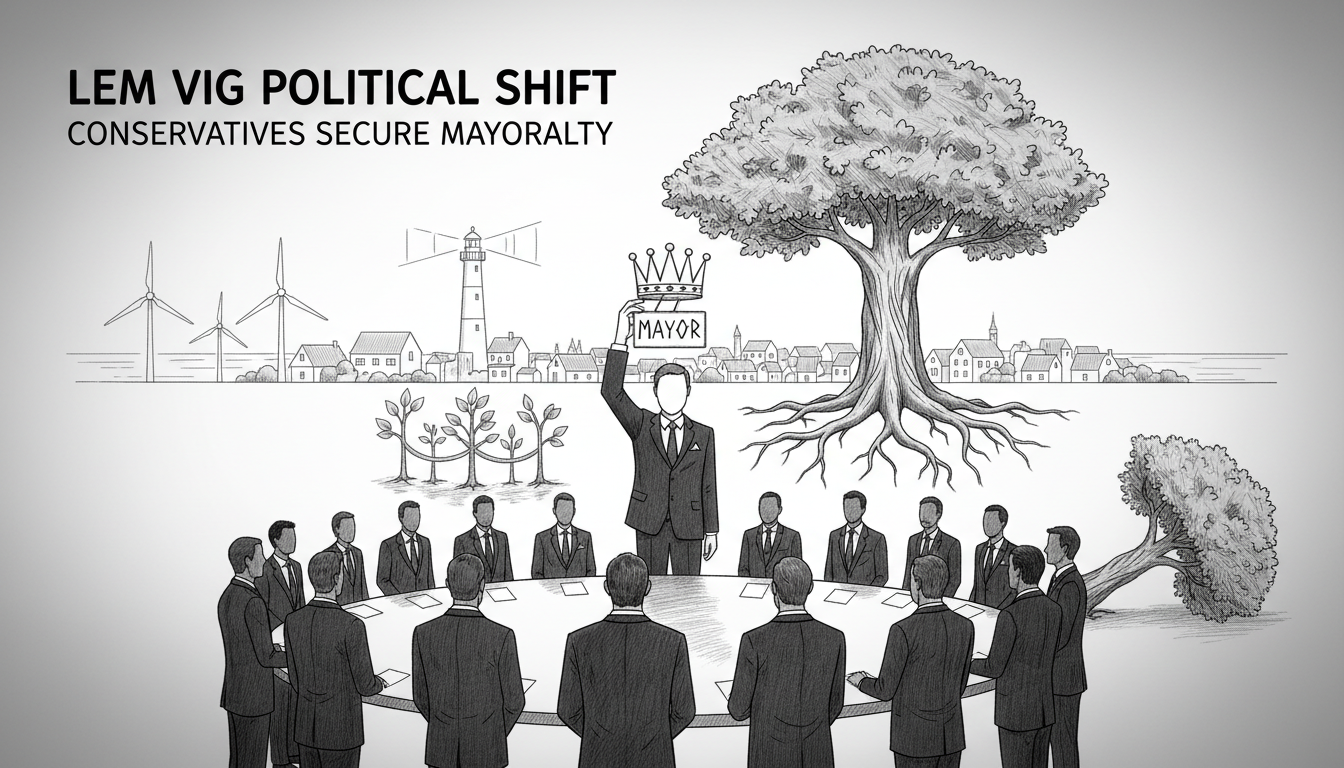A dramatic political reversal has unfolded in the Danish municipality of Lemvig. The Conservative Party's Jens Lønberg now stands to become the new mayor after a surprising coalition shift. This development comes just days after the Liberal Party's Chris Olesen appeared set to claim the position.
The political landscape changed rapidly during coalition negotiations. Lønberg revealed that support for Olesen began crumbling immediately after the initial agreement presentation. He expressed surprise at the terms that emerged from closed-door discussions.
Lønberg stated, 'When we come out and Chris reads the agreement, I become somewhat stunned. It states only that the Liberal Party received all positions. That sends a chill down my spine because that was not what we agreed upon inside.'
The original settlement had united the Liberal Party with Denmark Democrats, Conservatives, and the Rural and Urban List. This arrangement would have given the Liberal Party both the mayoral position and chairmanships of the three most important committees. Lønberg was slated to become first deputy mayor and chair of the Children and Youth Committee.
Lønberg noted the challenging negotiation process. 'I had to fight hard for my deputy mayor position, and it only landed as one of the very last items. I had hoped that with the Liberal Party being halved, I could get what I wanted,' he explained. He also believed he had signed an agreement giving the Social Democrats a chair position.
Tuesday's election proved costly for the Liberal Party, which lost five of its eleven seats and its absolute majority in the Lemvig council. The party's reduced standing created opportunities for other political players to reshape the governing coalition.
Olesen declined to comment on whether the Liberal Party had been too greedy in negotiations or what specific agreements were made on election night. He acknowledged, 'During a long negotiation spanning four to five hours, many things are said. I can only note that different perceptions of reality exist, and I cannot comment further on that.'
The new political configuration shows how quickly alliances can shift in Danish municipal politics. Smaller parties often hold decisive power in forming coalitions, especially when no single party commands an absolute majority.
Beyond Lønberg's ascension to mayor, Lone Pilgaard Sørensen from the Social Democrats will become first deputy mayor. Steen Madsen, also from the Social Democrats, continues as chairman of the family and culture committee.
This political shift in Lemvig reflects broader trends in Danish local politics. Municipal elections frequently produce unexpected coalitions as parties negotiate for influence. The outcome demonstrates how even seemingly settled agreements can unravel when multiple parties hold balancing power.
The situation highlights the practical realities of coalition building in Denmark's multi-party system. Parties must balance their policy goals with the need to secure stable governing majorities. Sometimes, as in Lemvig, initial agreements prove unstable when the distribution of positions fails to reflect the bargaining power of all participants.
Local political observers note that such dramatic last-minute changes, while uncommon, reveal the fluid nature of Danish municipal politics. The final coalition often depends not just on election results but on negotiation skills and the ability to build trust among potential partners.

